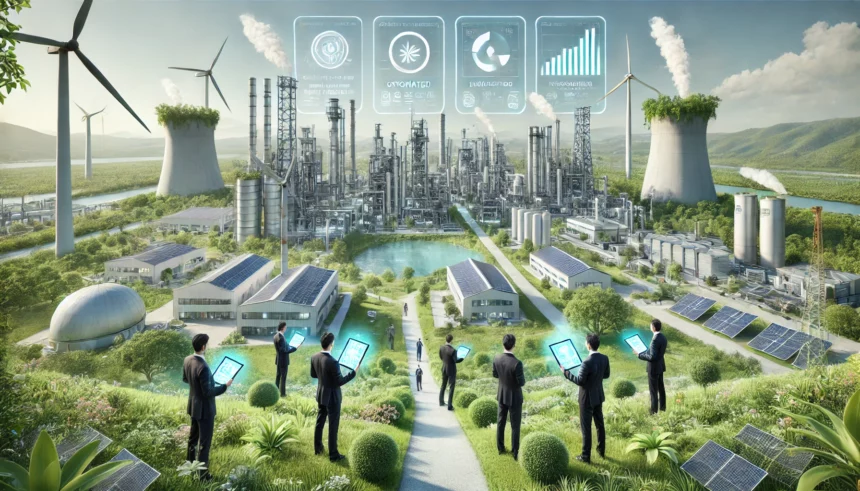Are you curious about how industries can help build a sustainable future? Whether you’re an entrepreneur looking to reduce your company’s environmental footprint, an employee advocating for greener practices, or a consumer interested in supporting eco-friendly products, understanding industrial sustainability is crucial.
In this article, we’ll explore practical strategies, challenges, and the significant impact of industrial sustainability. By the end, you’ll gain insights that empower you to make meaningful contributions towards a more sustainable world. Let’s dive in!
Understanding Industrial Sustainability
Industrial sustainability involves adopting practices to ensure that industries operate in environmentally responsible ways. This includes minimizing resource consumption, waste generation, and emissions, all of which affect the environment. Addressing greenhouse gas emissions is particularly critical because industries are major contributors to global emissions. By lowering their carbon footprint and integrating renewable energy sources, industrial sectors can effectively reduce their environmental impact.
Key Elements of Industrial Sustainability
Environmental Impact
- Pollution Reduction: Implementing stringent environmental standards to reduce pollutants.
- GHG Emissions: Cutting down greenhouse gases like carbon dioxide.
Energy Management
- Efficiency: Optimizing energy use to lower costs and emissions.
- Renewables: Integrating renewable energy sources into operations.
Supply Chain Management
- Sustainable Sourcing: Responsible raw material sourcing to minimize global consumption impacts.
- Green Practices: Implementing sustainable practices throughout the supply chain.
Challenges in Achieving Sustainability
Environmental Challenges
- Circular Economy: Balancing economic growth with preserving natural resources.
- Renewable Sourcing: Transitioning to renewable energy sources.
Reporting and Compliance
- Standards: Meeting sustainability reporting standards.
- Transparency: Ensuring compliance across global operations.
Strategies for Sustainable Industrial Practices
Operational Strategies
- Optimization: Enhancing production and distribution for efficiency.
- Adoption: Promoting sustainable practices at all operational levels.
Environmental Strategies
- Net Zero Goals: Setting and striving for zero emissions.
- Collaboration: Working with other industries to adopt sustainable innovations.
Regulatory Strategies
- Compliance: Navigating regulatory requirements.
- Proactivity: Addressing regulatory challenges early to build trust.
Technological Innovations and New Business Models
Clean Technologies
- Advancements: Leveraging new technologies to enhance energy efficiency.
- Renewables: Integrating renewable energy sources to reduce carbon footprints.
Circular Economy
- Resource Efficiency: Minimizing waste and maximizing resource use.
- Process Innovation: Rethinking production processes and supply chain dynamics.
Business Model Innovations
- Environmental Stewardship: Balancing profitability with environmental impact.
- Sustainable Investment: Investing in technologies and practices that future-proof operations.
Conclusion
Achieving sustainability in the industrial sector requires concerted efforts across various fronts. By prioritizing sustainability through innovative practices and embracing eco-friendly solutions, businesses can mitigate their environmental impact while enhancing product quality and operational efficiency.
The evolving landscape of sustainable practices represents a new concept in business strategy that balances economic growth with environmental stewardship. Industries optimizing resource use not only contribute to global sustainability goals but also enhance their resilience in a rapidly changing market.
Continued collaboration between businesses, governments, and communities is essential in driving sustainable innovation and fostering a culture of environmental responsibility. By embracing sustainability as a core value, industries safeguard natural resources and ensure long-term viability and profitability in an increasingly conscientious global economy.
















